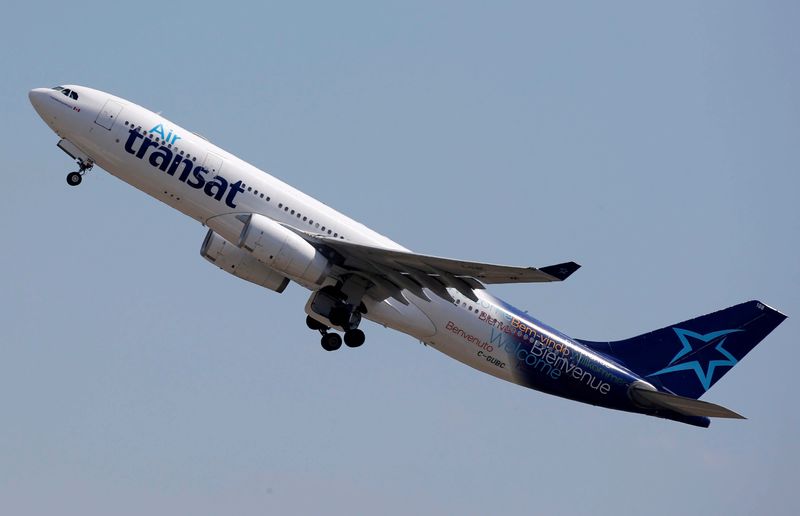Canada’s Air Transat flight attendants reject tentative labor deal – letter
2024.01.02 15:54

© Reuters. An Airbus A330-200 aircraft of Air Transat airlines takes off in Colomiers near Toulouse, France, July 10, 2018. REUTERS/Regis Duvignau/ File photo
By Allison Lampert and Shivansh Tiwary
(Reuters) -Flight attendants at Air Transat have voted to reject a new tentative contract with the Canadian leisure carrier, according to a letter from the union to cabin crew seen by Reuters on Tuesday.
More than 98% of the votes cast were against the agreement, as per the letter, posing a potential hurdle for the company as it looks to capitalize on a boom in air travel demand.
The airline last month reached a tentative agreement with the Canadian Union of Public Employees (CUPE), which represents about 2,000 Transat workers.
The agreement offered pay increases of about 18% over five years, three sources familiar with the matter told Reuters.
Air Transat did not immediately respond to a request for comment.
In late November, Transat flight attendants voted to authorize a mandate to strike, which would have become legal as of Jan. 3 under the Canadian Labor Code.
In the past two years, unions in the aerospace, construction, airline, and rail industries have advocated for higher wages and more benefits amid a tight labor market
Flight attendants are urging an end to the industry practice of not compensating them for the time spent during boarding and waiting at the airport before and between flights.
At present, flight attendants receive payment solely for the duration when the aircraft is in motion. Delta Air Lines (NYSE:) is the only U.S. carrier that pays its flight attendants during boarding time.
However, according to cabin crew briefing material seen by Reuters, the now-rejected contract would have paid the flight attendants Canada’s hourly minimum federal wage of C$16.65 for an hour of what is currently unpaid time, ahead of continental flights.
Last month, flight attendants at Southwest Airlines (NYSE:) voted against a five-year contract that would have made them the highest-paid cabin crew in the industry, but did not include compensation for boarding time.








